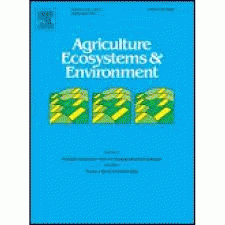The negative effects of soil fertility depletion on food security, especially among smallholder farmers in Africa, is of economic importance, and may be worsened by climate change and rising global fertiliser prices. Substantial efforts and investment have gone into development of alternative soil fertility management options. These include vigorous research and development of N-fixing plants or "fertiliser trees", that has been on-going in the last two decades in East and Southern Africa. In this paper, we review several studies conducted both on-station and on-farm and synthesise the results in terms of improvements in soil physical, chemical and biological properties, and crop yield in response to fertiliser trees. Our major findings are that (1) fertiliser trees add more than 60 kg N ha-1 per year through biological nitrogen fixation (BNF); (2) nutrient contributions from fertiliser tree biomass can reduce the requirement for mineral N fertiliser by 75%, translating to huge savings on mineral fertilisers; (3) fertiliser trees were also shown to substantially increase crop yield. A meta-analysis has further provided conclusive evidence that with good management, fertiliser trees can double maize yields compared with local farmer practices of maize cultivation without addition of external fertilisation. (4) Financial analyses showed that fertiliser tree systems are profitable and also have higher net returns than the farmers' de facto practice, i.e. continuous maize cropping without fertiliser. We conclude that widespread adoption and scaling up of fertiliser trees can reduce the amount of mineral fertiliser needed, maintain the soil ecosystem, and positively impact on the livelihoods of farm households in southern Africa.
DOI:
https://doi.org/10.1051/agro/2009058
Altmetric score:
Dimensions Citation Count:

Publication year
2010
Authors
Akinnifesi, F.K.; Ajayi, O.C.; Sileshi, G.; Chirwa, P.W.; Chianu, J.
Language
English
Keywords
agroforestry, food security, gliricidia sepium, legumes, soil fertility
Geographic
Malawi, Kenya, Tanzania, Zambia, Zimbabwe, Swaziland, Lesotho























